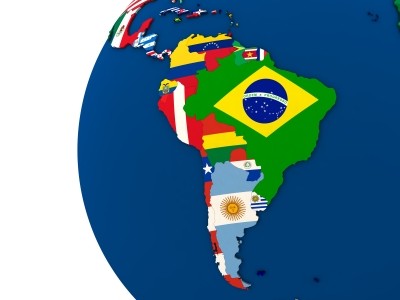Obesity in Latin America is a 'disaster area' – a consolidated, long-term response is needed, says expert

By 2030, it is estimated that more than 50% of males and 60% of females in Latin America will be overweight or obese, according to the Obesity Society.
A report from the Food and Agriculture Organization of the United Nations (FAO) and Pan American Health Organization (PAO) suggested obesity was most prevalent and on the rise in women and children. The rate of female obesity, it said, was 10 points higher than that of men across 20 countries in the Latin America-Caribbean region. For children, it said just over 7% of children under the age of five (around 4 million) were overweight.
Professor Corinna Hawkes, director of the Centre for Food Policy at City University of London, UK, said the situation around overweight and obesity in Latin America was a “disaster area”.
Speaking to FoodNavigator-LATAM, Hawkes said: [The region] really has to sort out overweight and obesity while maintaining economic competitiveness and growth that is dependent on food - that's a real challenge. How do they develop a competitive food industry in a way that is consistent with not trying to flog too much food down people's throats?”
Manufacturers – friend or foe?
Alongside obesity, Hawkes said there was still stunting and malnutrition in the region, and sadly, food and beverage companies continued to manufacture and advertise food not conditioned for diet needs.
“We have to see this as a long-term effort and we really have to start young,” she said. “We have to make sure that every child is born a healthy weight (not underweight but not too big) and grows in the correct trajectory (not too fast; not too slow) is breast fed and has access to complimentary baby foods which are wholesome and diverse but not too sweet. So, by the time they're five, they're not too used to having sugar and that's all they want to have. It's absolutely important to focus on early-life.”
Industry had to make meaningful change, she said, something many had already started doing to some extent.
“The food industry, ever since around 2004/2005 - probably about a decade, has switched tactics saying: 'we're not the problem, we're the solution'. Large players have actively undertaken initiatives designed to improve their offering; reduce marketing to children, label products more clearly etc. They have taken action, there's no question. But the question is: have they gone far enough?”
Hawkes said the reality in Latin America was that food and beverage companies still advertised and manufactured food not conditioned for diet needs in the region.
“What is going to be an effective way to address this? And that's where the nuance has to come. The reality is, people have got a link to these foods so it's not popular to take them away or make them more expensive through taxes. The fact is, people have gotten hooked. That's why we have to see this as a long-term effort and we really have to start young.”
“...The direction of travel is the right one, so that's good. But what I'd also say is we need to have some harder, more comprehensive approaches if we're really going to make a difference.”
Hard-driven policy
Such approaches, Hawkes said, had to be backed up by policy – an area Latin America had made headway in. Chile, for example, was emerging as a global leader in its efforts to reduce marketing to children, she said; Brazil had led on the production of food dietary guidelines; Mexico had implemented taxes; and Argentina was looking to move, starting in schools.
“There's a kind of collective view that Latin America is doing some interesting harder actions which are about saying: 'enough is enough, we need to surround healthy people with a healthy food environment in order to encourage healthy consumers', rather than just blaming it on the consumer.”
But, she said governments across the region had to work collectively on issues like reduced marketing to kids, improved labelling and driving a health-focus across all retail outlets.
“What I'd like to see is governments agreeing on a minimum set of actions that all countries are taking, albeit designed a bit differently to suit the national context, and governments working together to tackle this problem.
“It's also very important to build skills and food literacy; it's about giving them [the consumers] the skills to be healthy,” she said.
Asked how long it would take for Latin America to make a nutritional turnaround, Hawkes said: “I think it will take a generation and we need to see slow and steady change in that time to have a really meaningful impact. We can, if we work hard.”












